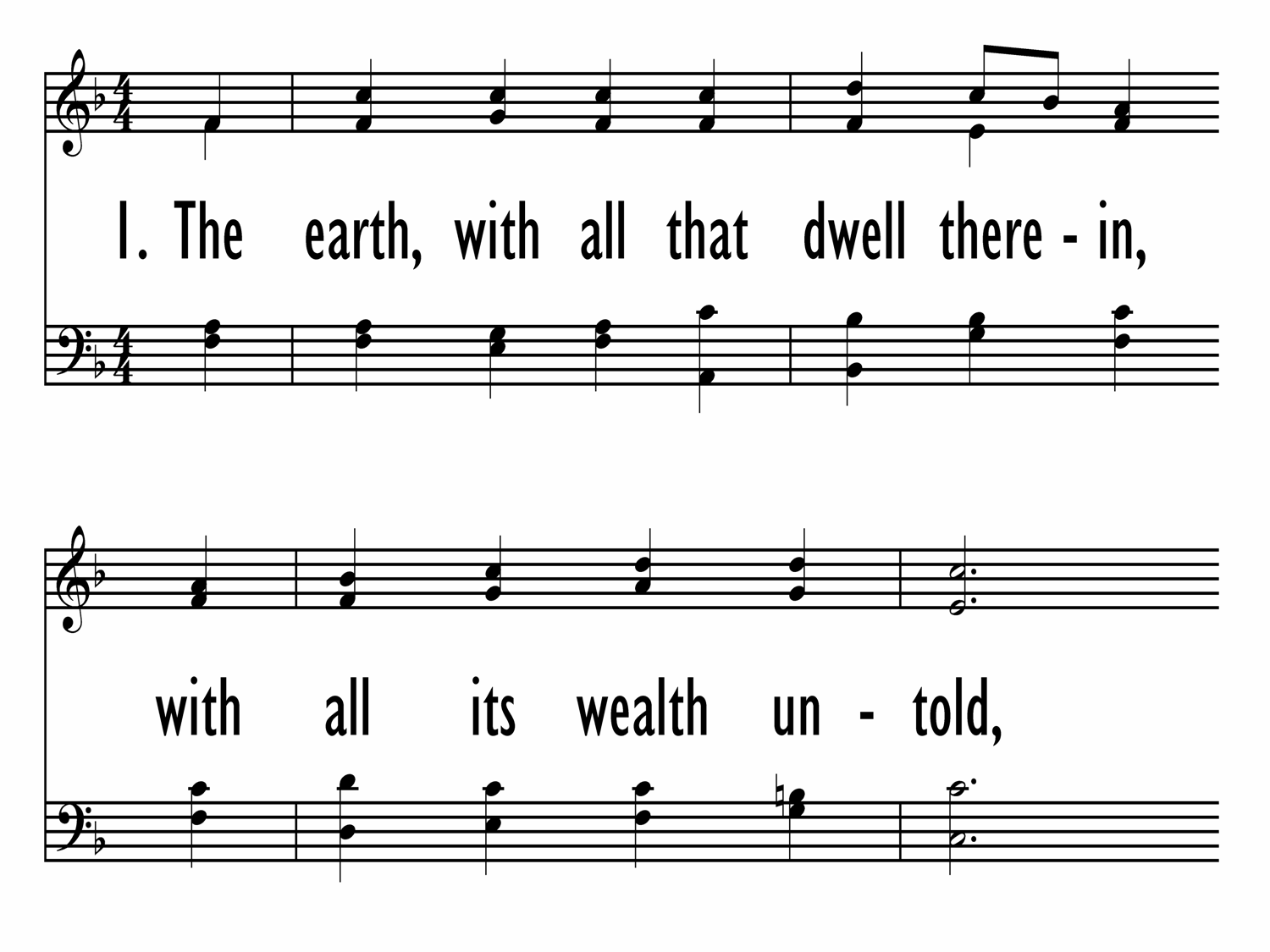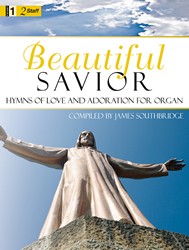- |
User Links
The Earth, with All That Dwell Therein
Hymn Information
- First Line
- The earth, with all that dwell therein
- Text Source
- <cite>Psalter</cite>, 1912, alt.
- Tune Name
- LOBT GOTT, IHR CHRISTEN
- Composer
- Nikolaus Herman, 1480-1561
- Topic
- Biblical Names and Places: Zion · Church Year: Christ the King · God as: King · Elements of Worship: Opening of Worship: Called And Gathered
Copyright Information
- Text Copyright
- Public Domain
- Tune Copyright
- Public Domain
- Reprint/Projection Information
- Words and Music: The Words and Music are in the Public Domain; you do not need permission to project or reprint the Words and Music.
Full Text
Scripture References
- ·
Thematically related:
- st. 5 = · · · · · ·
Further Reflections on Scripture References
In the background of this song you will find the truths of Psalms 24 and 121 primarily.
When stanza 5 speaks of the coming glorious king, take note of Psalm 72, the Gospel accounts of the Triumphal Entry on Passion/Palm Sunday (Matthew 21:1-11, Mark 11:1-11, Luke19:28-44, and John 12:12-19), and the visions of Revelation 4 and 19.
Confessions and Statements of Faith References
Further Reflections on Confessions and Statements of Faith References
God’s creative power, on display all around us, both obligates us and motivates us to give him worship. His work of creating all, and his constant care for all of it, stirs us in thanksgiving. Belgic Confession, Articles 12 and 13 spell these truths out beautifully: “We believe that the Father, when it seemed good to him, created heaven and earth and all other creatures from nothing, by the Word—that is to say, by the Son…”
Heidelberg Catechism, Lord’s Day 9 and 10, Questions and Answers 26-28 do the same: “…the eternal Father of our Lord Jesus Christ, who out of nothing created heaven and earth…”
Our World Belongs to God, paragraph 1 identifies the exclamation that gives us joy: “Our World Belongs to God!” and then in paragraph 8 testifies that “In the beginning, God—Father, Word, Spirit—called this world into being out of nothing, and gave it shape and order.”
The Earth, with All That Dwell Therein
Call to Worship
Additional Prayers
The Earth, with All That Dwell Therein
Tune Information
- Name
- LOBT GOTT, IHR CHRISTEN
- Key
- F Major
- Meter
- 8.6.8.6.6


 My Starred Hymns
My Starred Hymns






